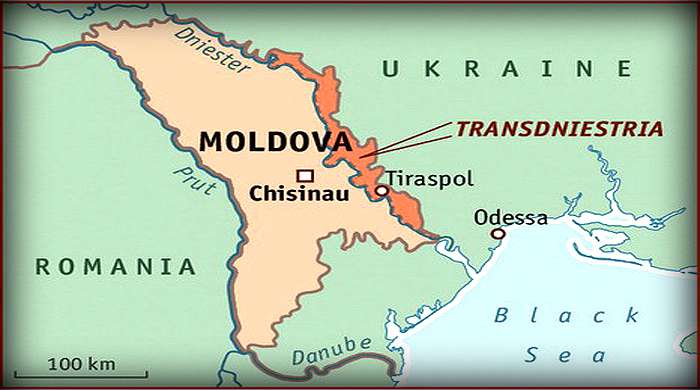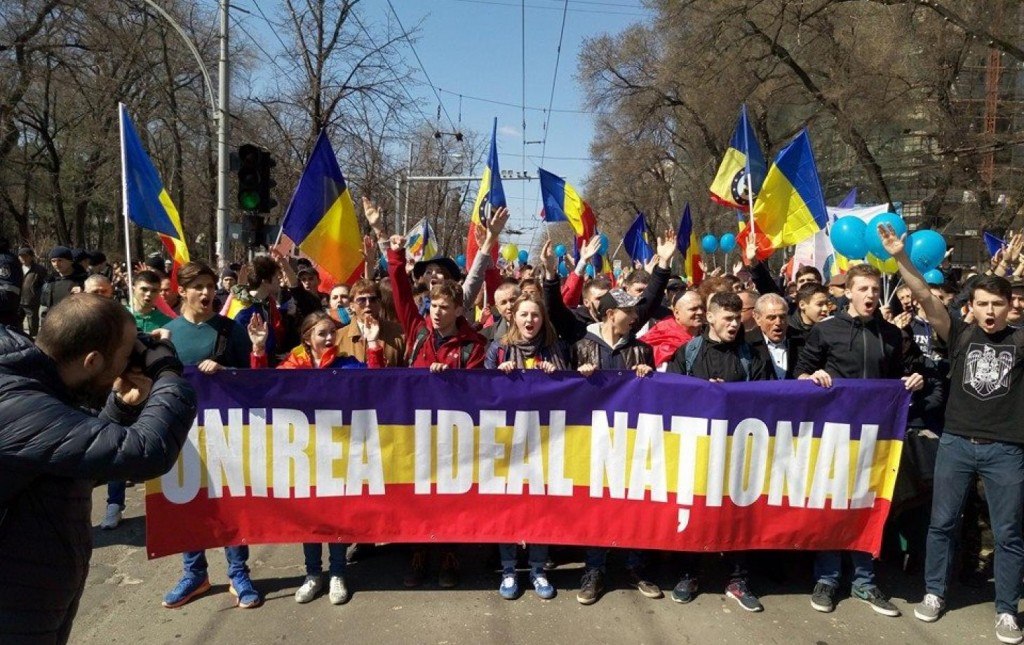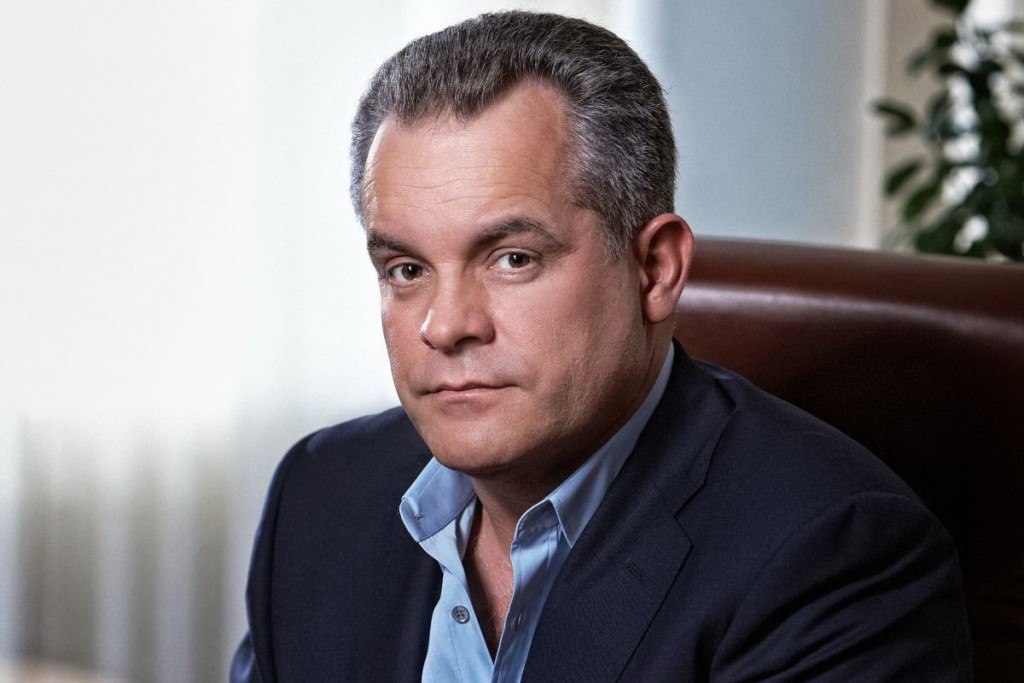Moldova got stuck in corruption and political fighting which are slowing down its path to the EU. Moreover, crisis in Chisinau gives ground for speculations of pro-Russian oligarchs who have their own goals.
Sergiy Gerasymchuk for Espreso.tv
Political fighting in Ukraine to some extent overshadows for media and expert the news from the neighboring Moldova. For many Ukrainians Moldova seems to be not sufficiently influential actor in the region whereas the period of political turbulence lasts there for so long that “the crisis” seems to be inevitable attribute of the Moldovan political system.
There are a lot of similarities in the Ukrainian and Moldovan politics
Underestimation of the processes which are taking place in Moldova is hardly acceptable.
First, there are too many similarities in Ukrainian and Moldovan politics: they are both corrupted; the system of justice is underdeveloped whereas fights between pro-European political parties in Moldova give ground for the increase in the ratings of the revanchist political powers and discredit the idea of European integration itself, and it might become a case for the Ukrainian pro-Europeans as well.
Second, Moldova more than 20 years ago faced the challenge of separatism inspired by Russian Federation in Transnistria (which is bordering Ukraine) and therefore lessons learned by Moldova can be useful for Ukrainians.
Third, it is fair to assume that Moldova for the Kremlin is sort of “shooting range” for the hybrid warfare where Moscow is testing the methods of discrediting of its opponents, invigorating conflicts and fights between pro-Russian and patriotic-oriented forces, undermining statehood.
The next round of such challenges is supposed to occur in the autumn of this year when the Republic of Moldova will elect its President. Ukraine has to pay attention to the methods that Moscow will apply since if they are successful in Moldova, Moscow will further apply them in the region of Eastern Partnership.
Romanian threat or “Romanian threat”

In the recent years each time when in Ukraine the discussion of the threats from Moscow was being launched (e.g. granting Russian passports in Crimea or claims for Ukrainian territories declared by some Russian politicians) almost simultaneously some experts and politicians were raising awareness on similar threats from Romanian side.
Official Bucharest was regularly rejecting any territorial claims. Even in well known for the specialists case of dispute around Serpent isle the discussion was related not to the territories but to exclusive economic zones in the Black Sea. However it was not perceived as an obstacle by the “exposers” who tended to look for the “Romanian coward plans” and referred to the talks of the Romanian marginal politicians who still claim that the territories of Bessarabia and Northern Bucovina should return under Romanian jurisdiction as if it was the official course of the Romanian government.
The situation became even worse after release of so called “Belkovsky plan” – the adventurist proposal of the Russian spin-doctor “to give” the territory of Transnistria to Ukraine whereas the Republic of Moldova will be attached to Romania.
Even now when Romania more than once demonstrated to Ukraine its support during the Revolution of Dignity and in the conflict with the Russian Federation there are still those who think that Romania is politically coward and thus emphasize controversies between two states.
No less sensitive is the issue of Romanian threat in the Republic of Moldova.
The issue of unification of Romania and the Republic of Moldova is not on the agenda of any of these states. The cost of such project would have been enormous.
However, there is a lot of those who believes that Romanians and Moldovans are the same people. Common language, history and cultural proximity are the arguments in favor of such assumption. Since recently it has become an issue for the significant political speculations in the Republic of Moldova. There is a number of those who, while being disappointed in the perspective of European integration, are talking about unification with Romania as the only chance for Moldova to join the EU. Among the unionists there are those who provide such movement with the extremist attributes (e.g. “Noua Dreapta” (New Right) party) and that is perceived as the direct threat by Russian-speaking population of Moldova and inhabitants of Transnistria.
One of the recent activities of the supporters of unification with Romania was the march of unionists in Chisinau on March 27, 2016. Such marches take place annually. Don’t they remind the annual torchlight marches in Ukraine and regular provocations that it causes? However, this year extreme unionist went far beyond. At the eve of manifestations they held a Congress “Sfatul Tarii – 2” drawing the parallels with a similar assembly in 1918 at which there was a voting for Moldova’s accession to Romania.

The delegates of the new “Sfatul Tarii” announced the necessity of unification of the Republic of Moldova and Romania until 2018. Besides the participants of the Congress suggested that the left side of Dniester river of the Republic of Moldova should belong to Ukraine.
The reaction of the pro-Russian forces was prompt. As well as the leftists in Ukraine (e.g. Symonenko and Vitrenko) Moldovan socialists the same day had an alternative manifestation “in favor of the Moldovan statehood”. Moreover, the next day the leader of the Moldovan Socialists Igor Dodon made a declaration that the march of unionists was a direct violation of the Moldovan Constitution and those who supported it are state criminals in his opinion.
Obviously, the declarations of the “unionists” also caused concerns in Transnistria. Transnistrian media pointed that the representatives of “Sfatul Tarii” are revanchists and reminded that the goal of the “Transnistrian republic” is to “join Russian Federation”
Russian maneuvers at the Transnistrian flank
Obviously, when the Socialists under Igor Dodon and also “Partidul nostrum” (Our Party) headed by Renato Usatii – another explicitly pro-Russian party in Moldova sharply react to so called “Romanian threat” they are aiming at few goals. On the one hand, they gain political bonuses from Russian-speaking and pro-Russian voters intimidated by the perspective to become “third sort” citizens at a Great Romania. On the other hand, the leaders of pro-Russian forces try to demonstrate they loyalty to their Kremlin-based patrons in Moscow. Besides, it is clear that in Transnistria the “Romanian threat” assists to consolidate the society. Since 90th of the previous century the authorities there were exploiting the thesis about the “Romanian tanks” to prove the necessity of being “independent from Moldova” and expecting “Brotherly support” from Moscow.
Meanwhile, Moscow is actively playing both with the sentiments of the voters and with the geopolitical situation in the region.
Already on March 31 Russia held in Transnistria the drills for the Operative Groupd of Russian military forces notwithstanding the demands of Moldova to withdraw Russian troops from Transnistrian region voiced on that very day.
Russia also conscripts the soldiers in the Transnistrian region which is de-jure the territory of Moldova. The Ambassador of Russia to Moldova was even summoned to the MFA of Moldova in this regard.
On April 10 media also published the information that alongside with the other Russian officer under the pretext of alleged inspection of troops at the Transnistrian territory general colonel of the Russian armed forces Oleksandr Lentsov arrived to Moldova. He is infamous for his participation in operations in Chechnya, Syria and the East of Ukraine (in particular in Debaltsevo) and also the details of his assigniment are not clear anyway his appearance in Moldova is a bad sign.
«The game of the Moldovan puppeteer»?

Bearing in mind internal political and geopolitical circumstances the game of the Moldovan politician and businessman and arguably the most influential person in the Republic of Moldova – Vlad Plahotniuc – deserves for the attention.
On the one hand Vlad Plahotniuc is an extremely unpopular figure in the Moldovan political life. He is often blamed for corruption and hypocrisy. Plahotniuc and his Democratic Party are being opposed by the politicians from both left and right flank, both pro-Russian and pro-Romanian forces.
On the other hand, Plahotniuc is not supported by the Russian Federation that put its stakes on Dodon and Usatii neither by the EU that would have preferred someone less odious to be in power in Moldova.
However, notwithstanding the lack of trust from the voters and suspicious methods of political fight Plahotniuc is currently in control of parliament, government and, according to Moldovan experts, the majority of business flows.
Besides, it looks that Plahotniuc is not the one who easily gives up under the pressure of circumstances so balancing between the geopolitical poles and target attacks at the opponents will further belong to his arsenal.
One of the steps in this direction is that Plahotniuc’s party alongside with the Communists and Socialists supported another declaration of neutrality of the Republic of Moldova (already envisaged by the Constitution of Moldova). The factions of Socialists and Communists believe that by these means they will be able to put the additional pressure on the “unionists”. This notion also gained the support from Moscow. In Kremlin they believe that it would be easier to control neutral Moldova than pro-European country integrated to Euro-Atlantic structure. Simultaneously the Democrats of Plahotniuc may use this declaration as the instrument of pressing Russophiles and the additional pretext for persistent demanding of the withdrawal of Russian troops from the right bank of Dniester because placing of foreign troops at the territories of neutral states is unacceptable from the perspective of international humanitarian law.
Democrats also play at the internal political field. On the one hand, Renato Usatii was blaming the party of Plahotniuc for “unionism”. However, on April 2 the representatives of the Democratic Party together with the leftists participated at the march in support of “Moldovan statehood and Constitution” in Gagauz region of Moldova. Leftists forces were surprised by such step and could not react promptly on being together with their opponents from Democratic Party.
The outcome of the smart game of the Democratic Party and Plahotniuc himself is that while the experts and voters are trying to understand whether this political force is pro-Romanian or pro-Russian they pay less attention to social and economic situation within the country and there is less criticism towards Plahotniuc’s proxy – Prime minister Pavel Filip. Besides, by strengthening the tensions between the supporters of unification with Romania and supporters of pro-Russian course, Plahotniuc is creating the tensions between his opponents from the right and left flank preventing them from fighting him jointly. Therefore it appears that he got his nick-name “puppeteer” rightly and he, at least at the moment, is able to build his own “feud” in the center of Europe, notwithstanding influential players in the region and despite permanent political crisis in Moldova.
Time «Х»
How successful is the game of Plahotniuc? How strong are the positions of Russophiles and unionists in Moldova? What steps the EU and Russian Federation will take and what should Ukraine expect – Russian strike from Transnistria or Transnistrian region as a present? The answers to all these questions will become clear in a short-time perspective. On October 30 the elections of the President will take place in Moldova, while on December 11 “presidential elections” will also take place in self-proclaimed «Transnistrian Moldovan Republic».
It is clear that the campaign has been already launched. The provocative unionist card and pro-Russian sentiments will remain its components. The EU will further seek for non-compromised faces in Moldovan politics and Russia will further conduct dialogue regarding strengthening of her influence by speculating regarding the role of its troops in Transnistria and by using her fifth column.
Plahotniuc will also continue playing his game by manipulating the tensions between right and left forces, balancing between Russia and the EU, attempting to ensure his almost excusive power in the Republic of Moldova.
The elections in the autumn will disclose a lot but there are some lessons that Ukraine can already learn.
First, the scenarios of tensions between the Ukrainian right radicals and their opponents is quite relevant for Ukraine and hopefully, contrary to the authorities of Moldova, in Ukraine the authorities will not inflame this conflict in order to cover the weak sides of economic and social policy.
Second, Ukraine as well as Moldova is a subject of geopolitical competition between the West and Russia and hopefully pro-Western political elites in Ukraine will not disappoint their electorate as much as it happened in Moldova and right radicals and pro-Russian forces will not shape a joint force aimed at fighting the current authorities.
Finally, third, hopefully the attempts of Vlad Plahotniuc to build in Moldova the state for himself by playing with the controversies of the internal and external players will not be too inspiring for the Ukrainian politicians…



